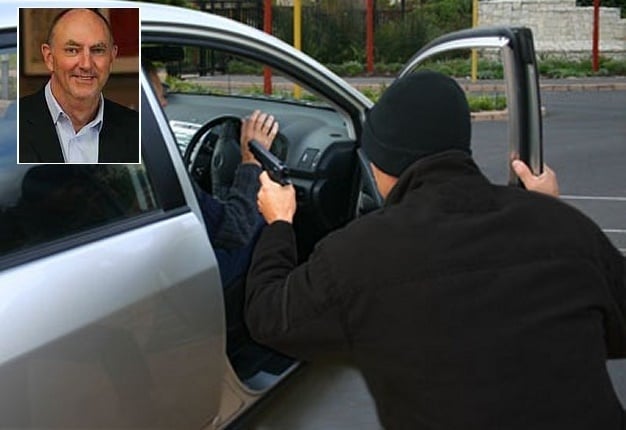
JOHANNESBURG, South Africa - The crime rate in South Africa is expected to continue to rise as economic and social conditions deteriorate – it’s a trend that is already shown in the sharp climb in truck and car hijackings.
That’s the opinion of John Edmeston, global CFO of Cartrack Holdings, who adds that as economic growth contracts, unemployment figures grow and regard for the rule-of-law deteriorates, vehicle tracking and recovery companies believe, theft and hijacking for sale into the illicit local and cross-border markets will increase.
'SAVING A BUCK'
About 50% of stolen and hijacked vehicles are disposed of within South Africa, he adds, and 30% are exported to other countries while the rest find their way into chop-shops and the parts market.
“As long as cash-strapped consumers are prepared to look the other way to save a buck and fuel demand criminal syndicates will continue to operate and flourish.”
Official crime statistics show a 12.3% increase in carjacking to 11 221 reported cases, Edmeston says. His company’s truck hijacking stats increased by 16% in the financial year to February 2015. “This aligns with similar figures released by the Road Freight Association.”
ECONOMICS OF CRIME
The association, he explained, reported 1150 truck hijackings across the industry during the same period – “a rapid and significant escalation”.
More reports, he added, are showing a direct correlation between the crime rate and economic and social conditions. “Car and truck hijackings are generally perpetrated by organised crime syndicates, thus the hijacking increases also suggest that organised crime is on the rise in South Africa.”
He pointed out that a report by the United Nations Office on Drugs and Crime, Monitoring the Impact of Economic Crisis on Crime, shows crime increases during economic crises. The incidence of robbery, the report said, might double and homicide and vehicle theft increase.
Using data recorded by police in 15 countries, Edmeston claims, the incidence of robbery, homicide and car theft correlate with the possible effects of economic stress. In eight of 11 countries undergoing economic upheaval, a link between economic factors and crime could be clearly established.
He also pointed out that during the financial crisis of 2008/9 truck hijackings in SA soared by 61% over 2006/7. During the recovery years of 2011/12 the number of incidents fell by 42%.
“Nevertheless we have to come to terms with the fact that crime, particularly organised crime, is an industry in itself and will thrive regardless of economics in an environment where controls and consequences are inadequate.”
SYNDICATES RIFE
Beyond the economic link to crime rates, Edmeston pointed out, various studies stated that many factors were driving this trend, among them youth gangs, drugs, alcohol and the availability of firearms.
“Gangs operating drug and vehicle theft syndicates are rife across South Africa, particularly in Gauteng and the Western Cape,” Edmeston said. “Exacerbating this, the perceived or real high levels of corruption, instability in our law enforcement agencies and perceived low criminal prosecution rates also play a role in bolstering crime - criminals believe they can act with impunity.”
There was, he said, “a ticking time bomb” forecast of 10-million unemployed young South Africans by 2020; already the World Employment and Social Outlook – Trends 2015 report puts South Africa as having the world’s eighth-highest unemployment rate and among the youth the figure is 52.5% - sixth, globally.
“Tackling youth unemployment has to be South Africa’s single most important focus; business and government must find common ground to defuse that bomb.”
ILLICIT SOLUTIONS
Edmeston believed large numbers of unemployed youth have been at the centre of unrest, service delivery protests and rebellions across Africa.
“Studies have shown that where there is widespread unemployment, there is the potential for an increasing proportion of the population to identify illicit solutions to their immediate problems.”




 Publications
Publications
 Partners
Partners













